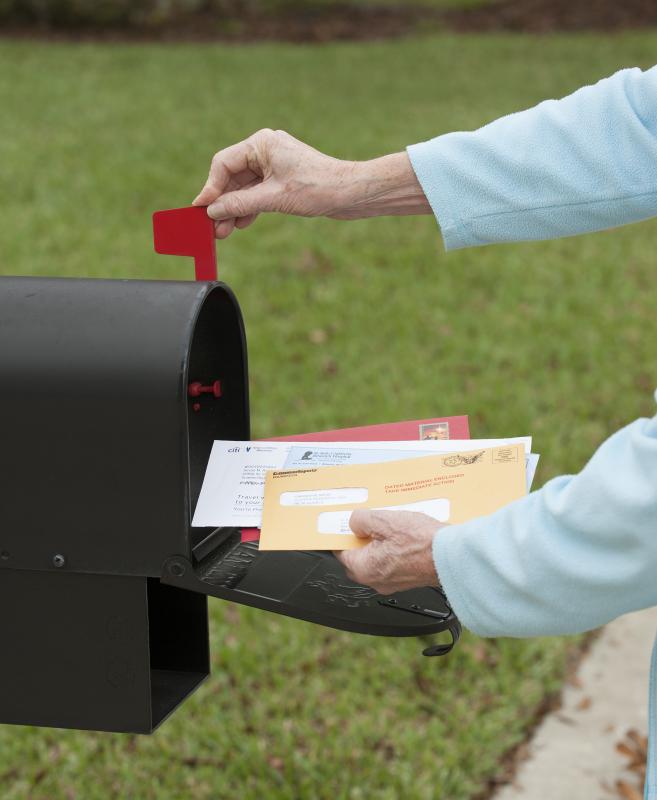At WiseGEEK, we're committed to delivering accurate, trustworthy information. Our expert-authored content is rigorously fact-checked and sourced from credible authorities. Discover how we uphold the highest standards in providing you with reliable knowledge.
What does It Mean to be Nationalized?
For a business to be nationalized means that the government has taken it over, putting it into public ownership. Often an entire industry will become nationalized, as the government takes over its assets and control of its operations to help it function more efficiently, either for a long period of time or during a period of crisis. There are a number of different reasons for businesses and industries to become nationalized, ranging from ideological to economic to defense-oriented.
In governments practicing a form of state socialism, most, if not all, core industries are nationalized. This theoretically allows the government to run the companies in the interest of the people as a whole, rather than having the companies be run in the interest of profit for a select view. The hope is that this reduces corruption and graft, and that the removal of a profit motive allows prices to remain low for all consumers.

Most countries contain at least a handful of nationalized businesses. This can range from governments that own a majority of businesses in the country, to governments that nominally oppose nationalization. Even in the latter case, however, core businesses often will be nationalized. Over the past few decades, a number of traditionally nationalized industries in the developed world have become privatized, allowing private businesses to operate them. For example, many countries which had nationalized penal systems sold the rights to operate prisons and jails to private contractors.

In the United States, there has long been a struggle over nationalization and privatization, with strong voices on both sides. In the latter part of the 20th century, many nationalized industries became privatized, and many private sectors that enjoyed virtual monopolies because of state intervention were opened up to greater competition. A number of industries still remain nationalized, however, in some cases due to legal requirements. The United States Postal Service, for example, is a nationalized mail system, and its status is guaranteed by the Constitution, which would make any attempt to privatize it a difficult task.
Often nationalization will take place in times of war or strife, when the national government feels a need to directly intervene in private industry. This may be the result of security concerns, or it may simply be because the industries are not capable of operating at a profit, but the government sees a need for them to remain solvent. For example, during World War I the United States government nationalized every railroad under one national company, the Railroad Administration, for the duration of the war. More recently, following the attacks of 11 September 2001, the United States nationalized the previously private-sector airport security, creating the Transportation Security Administration.
With the global economic crisis in 2008 and 2009, governments around the world began the process of at least partially nationalizing many banking and insurance institutions. As banks struggled with solvency, the many governments intervened financially to ensure that credit remained fluid, and in many cases took partial or complete ownership of the banks in return. This generated a great deal of controversy, with some people believing that the banks should be fully nationalized in order to fight corruption and profiteering, and others believing the banks should be allowed to function as largely unregulated private institutions.
AS FEATURED ON:
AS FEATURED ON:












Discussion Comments
@Candyquilt: Demonstrate that governments always do not run industries very efficiently.
Prove the act of nationalizing industries makes a government socialist.
Why is it bad to have a socialist government?
America is a capitalist nation and it has been working just fine this way. We don't need government interference in the private sector. Plus, it is well known that governments do not run industries very efficiently. That has been one of the big arguments against socialism in the first place.
There were also nation-wide polls done last year about bank nationalization and the majority of Americans polled were against nationalization. I think it was close to 90%.
I've also heard many people arguing against nationalization because they think that nationalization only belongs to socialist governments and nationalizing makes us socialists.
I don't think that this is true. The article has done a good job pointing out why the government feels the need to nationalize sometimes. Clearly, the reasons are not to change America into a socialist government. It's done with economic stability and national security in mind and is meant to be temporary. I think this is completely acceptable.
Post your comments